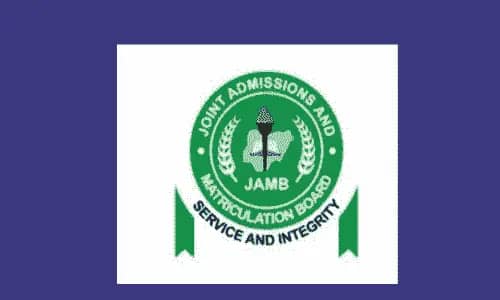The Joint Admissions and Matriculation Board (JAMB) offers Music as one of the subjects candidates can select for the Unified Tertiary Matriculation Examination (UTME).
Music is an art form that combines sound, melody, rhythm, and harmony to create impactful experiences. It serves purposes such as entertainment, education, communication, expression, and therapy.
If you are interested in pursuing Music or related courses at Nigerian tertiary institutions, adequate preparation for the JAMB Music examination is essential.
Using the JAMB-recommended textbooks is one of the most effective ways to prepare. These books are selected to align with the examination syllabus and objectives.
This guide outlines the recommended textbooks for Music 2025/2026, provides detailed insights into their content, and offers tips on how to study efficiently for the examination.
Why Use JAMB-Recommended Textbooks for Music?
JAMB-recommended textbooks are specifically chosen to cover every aspect of the syllabus comprehensively. They ensure you are well-prepared for the topics and question formats in the Music UTME.
These books also help improve your understanding of the theoretical and practical aspects of music, providing insights into topics like rudiments, harmony, African music, and Western music history.
List of JAMB Recommended Textbooks for Music 2025/2026
Below is the official list of textbooks endorsed by JAMB for Music candidates:
- Akpabot, S.E. (1986) – Foundation of Nigerian Traditional Music, Ibadan: Spectrum.
- Associated Board of the Royal School of Music (1958) – Rudiments and Theory of Music, London.
- Cole, W. (1969) – The Form of Music, London: The Associated Board of the Royal Schools of Music.
- Echezona, W.W.C. (1981) – Nigerian Musical Instruments, Enugu: Apollo Publishing Ltd.
- Ekwueme, L. (1993) – Choir Training and Choral Conducting for Africans, Lagos: Lenaus Advertising and Publishing Company.
- Holst, I. (1963) – An ABC of Music, Oxford: Oxford University Press.
- Hosier (1961) – Instruments of the Orchestra, Oxford: Oxford University Press.
- Hunt, R. (1960) – Elements of Music.
- Inanga, A. (1993) – Music for Secondary Schools Vols. I and II, Ibadan: Spectrum.
- Kamien, R. (1990) – Music: An Appreciation, London: McGraw-Hill Publishing Company.
- Kennedy, M. (1985) – The Concise Oxford Dictionary of Music (Third Edition), London: Oxford University Press.
- Kitson, C.H. (1978) – Elementary Harmony Book 2, London: Oxford University Press.
- Kofoworola, Z.O. & Lateef, Y. (1987) – Hausa Performing Arts and Music, Lagos: Nigeria Magazine.
- Lovelock, W. (1953) – A Concise History of Music, London: Bell and Hyman.
- Lovelock, W. (1996) – The Rudiments of Music, London: G. Bell and Sons Limited.
- Machlis, J. (1977) – The Enjoyment of Music, New York: W.W. Norton.
- Mensah, A.A. – Folksongs for Schools, Accra.
- Morris, R.O. (1974) – The Oxford Harmony Vol. I, London: Oxford University Press.
- Nketia, J.H. (1974) – African Music, New York: W.W. Norton Company.
- Palmer, K. (1965) – Teach Yourself Music, London: The English University Press Limited.
- Reed, H.O. (1954) – Basic Music: A Basic Theory Text, New York: Mills Music Inc.
- Taylor, E. (1989) – The Guide to Music Theory, London: The Associated Board of The Royal School of Music.
- Warburton, A.O. (1955) – Graded Music Course for Schools Books I–III, London: Longman.
Areas Covered by These Textbooks
These textbooks cover critical areas like:
- Comparative Music Studies
- Elementary Harmony
- Elementary Composition
- African and Western Music History
- Rudiments and Theory of Music
How to Use These Textbooks Effectively
Simply owning these books is not enough; how you use them determines your success. Below are practical tips:
- Understand the JAMB Music Syllabus: Familiarise yourself with the topics and objectives of the syllabus. Know the concepts you need to master and prioritise them in your study schedule.
- Select Preferred Books: You don’t need to use every book on the list. Choose one or two primary textbooks that match your learning style and refer to others for additional clarification.
- Take Notes While Reading: Highlight key points, definitions, and terms as you read. Use diagrams, tables, or mnemonics to simplify complex topics and aid retention.
- Solve Past Questions: Practice past JAMB questions to test your understanding. This also helps you get accustomed to the question format and difficulty level.
- Revise Regularly: Review your notes periodically. Focus on areas where you feel less confident to strengthen your knowledge.
- Join Study Groups: Collaborate with other candidates. Discuss topics, exchange ideas, and solve practice questions together for better understanding.
- Seek Guidance: Consult teachers or mentors if you face difficulties. Their expertise can help clarify complex topics.
Benefits of Preparing with JAMB-Recommended Textbooks
- Comprehensive coverage of the syllabus
- Enhanced understanding of music theory and history
- Exposure to potential examination formats
- Improved confidence and readiness
Conclusion
JAMB-recommended textbooks for Music 2025/2026 provide the foundation you need for effective preparation.
When used strategically, they help you understand essential topics and master the required skills. By following the tips outlined above, you can maximise your chances of excelling in the examination.
For further inquiries or assistance, feel free to leave your comments below. Good luck with your preparation!
